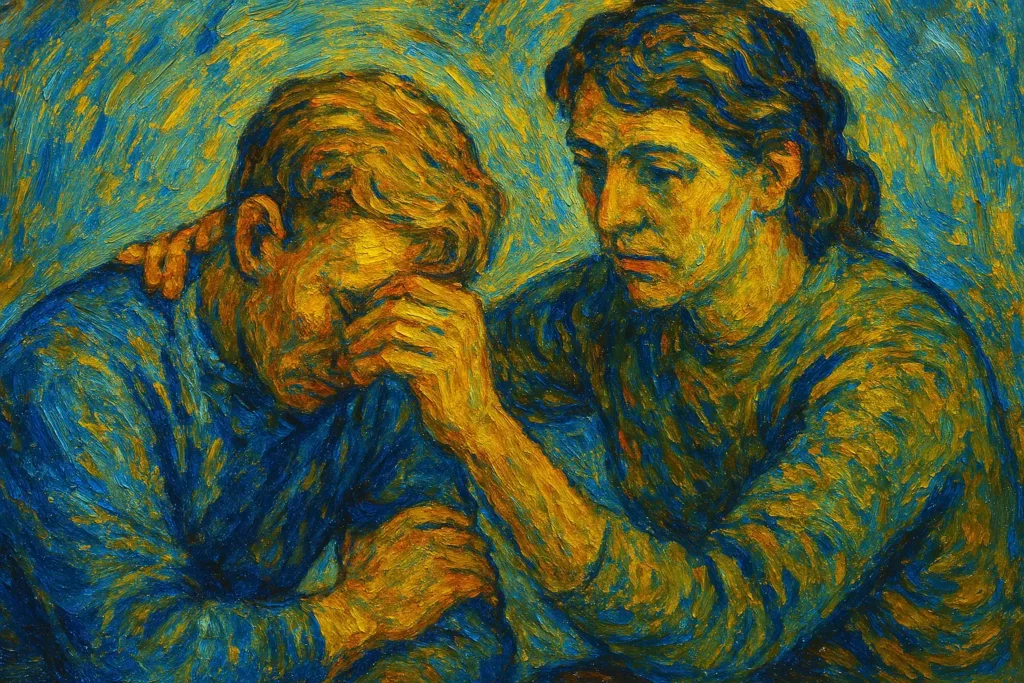You know: addiction doesn’t just affect the person who is using—it touches everyone who loves them. If you have a friend, sibling, child, or partner struggling with addiction, you may feel a painful storm of emotions: fear, frustration, confusion, and heartbreak. You may also feel helpless, unsure of what to say or do, terrified to say the wrong thing. And, it may be hard to believe: you’re not alone; there is hope.
As the founder of a charity dedicated to supporting young adults in addiction risk or recovery, I’ve seen the powerful impact of loving, informed support. When families and friends understand how to be part of the recovery journey—without enabling or losing themselves—they can be a powerful force for healing. Here, we’ll offer guidance on how to support a loved one with addiction or alcoholism, including communication tips, behaviors that truly help, and resources you can turn to for support.
-
Educate Yourself About Addiction
Before you can help someone else, it’s important to understand what addiction is—and what it isn’t. Addiction is a chronic medical condition that changes the brain’s chemistry and behavior. It’s not a moral failing or a lack of willpower. Your loved one isn’t choosing addiction, even if their choices seem self-destructive.
Understanding addiction as a disease can take you on an important shift; it will redirect your mindset from blame to compassion. It will help you separate the person you love from the addiction that is harming them. They are still there—behind the behaviors, the lies, and the pain.
There are many excellent books, articles, and organizations that explain addiction in plain terms. Some starting points include:
National Institute on Drug Abuse (NIDA)
Substance Abuse and Mental Health Services Administration (SAMHSA)
Al-Anon Family Groups
-
Communicate with Compassion and Clarity
One of the hardest parts of supporting a loved one with addiction is knowing how to talk to them. You may want to shake them into seeing the damage, beg them to stop, or lash out in anger. But effective communication requires calm, honesty, and compassion—even when emotions are running high.
Here are suggestions for talking to someone in active addiction:
- Use “I” statement instead of “you” statements.
- Say: “I feel scared when you don’t come home,” rather than “You always disappear and make me worry.”
- Avoid judgment or shame.
Addiction thrives in secrecy and shame. Your loved one is likely already carrying guilt. Offer concern, not condemnation.
- Pick the right moment.
Don’t try to have a heart-to-heart during a crisis or when your loved one is under the influence. Wait for a moment of relative calm.
- Be honest and specific.
Let them know how their behavior affects you and what you’re willing (and not willing) to tolerate going forward.
-
Practice Boundaries, Not Ultimatums
There’s a fine line between helping and enabling. Family members can easily fall into patterns that unintentionally support the addiction; covering up for the person, giving them money, or shielding them from consequences are all counter productive. Setting healthy boundaries is essential. This might mean:
- Refusing to give money that could be used for drugs or alcohol
- Not allowing substance use in your home
- Asking them to leave if they become violent or verbally abusive
Boundaries are about protecting your own health and well-being—not punishing your loved one. They can be hard to set, but they ultimately create the space needed for recovery to begin.
-
Take Care of Yourself
It’s easy to understand why supporting someone in addiction is emotionally exhausting. You may be constantly worried, walking on eggshells, not knowing what to hide, or feeling responsible for their choices. Yet, you can’t pour from an empty cup.
Make sure to:
- Seek support for yourself. Join a support group like Al-Anon or Nar-Anon. Talk to a therapist who understands addiction in families.
- Allow yourself joy, difficult as it seems. You’re allowed to laugh, to rest, to spend time with friends, even if your loved one is struggling.
- Let go of control. You didn’t cause the addiction, and you can’t cure it. Recovery is your loved one’s responsibility.
Beyond the obvious benefit to your soul, to your ability to cope, when you care for yourself, you also model healthy behavior. You become more emotionally available to support them—if and when they’re ready to accept help.
-
Encourage Treatment, But Don’t Force It
Recovery must be chosen, not imposed. You can encourage your loved one to seek treatment, yet you can’t force them to change. What you can do is provide options, be a consistent voice of care, and let them know that support is available.
When the moment comes—whether it’s a rock-bottom crisis or a quiet realization—they may ask for help. Be ready with information:
- Detox centers and inpatient rehabs
- Outpatient programs
- Therapists specializing in addiction
- Peer support meetings like AA, NA, or SMART Recovery
If your loved one refuses help, continue your choice of kindness and consistency. Many people don’t accept help on the first, second, or even tenth offer. But seeds are planted with every conversation, every boundary, and every show of support; they will grow.
-
Know the Power of Community Resources
You’re not expected to do this alone. There are incredible organizations working every day to support addicts and their families—including ours, Gregg’s Gift.
At our charity, we focus on vulnerable young adults and their families, offering resources such as:
- Education
- Rehabilitation
- Safe Spaces
- Transportation
- Harm Reduction
- In Patient Treatment (Israel)
Your support—through donations or spreading the word—helps us reach more young people and their families, at any point along their journey of addiction or recovery. Every life matters. Every story has hope.
-
Keep Hope Alive
Addiction is powerful—and so is recovery. We’ve seen young adults reclaim their lives, restore relationships, and discover new purpose. We’ve seen parents go from despair to joy. We’ve watched people who once felt lost become beacons for others.
No matter how far gone your loved one seems, recovery is possible. Your role is not to fix them, but to walk beside them—with boundaries, love, and patience—through the darkness and into the light.
Supporting someone with addiction is one of the hardest journeys you may ever face. But you are not alone. Whether you need information, support, or just someone to say “I get it,” we are here.
If this blog resonated with you, please consider supporting our work. Your donation helps us provide life-saving resources to young adults and their families—and creates a network of hope and healing.
Together, we make a difference. One person, one conversation, one life at a time.
To learn more about our mission or to donate, visit www.greggsgift.org
If you or someone you love is in crisis, call the SAMHSA Helpline at 1-800-662-HELP (4357), available 24/7.

